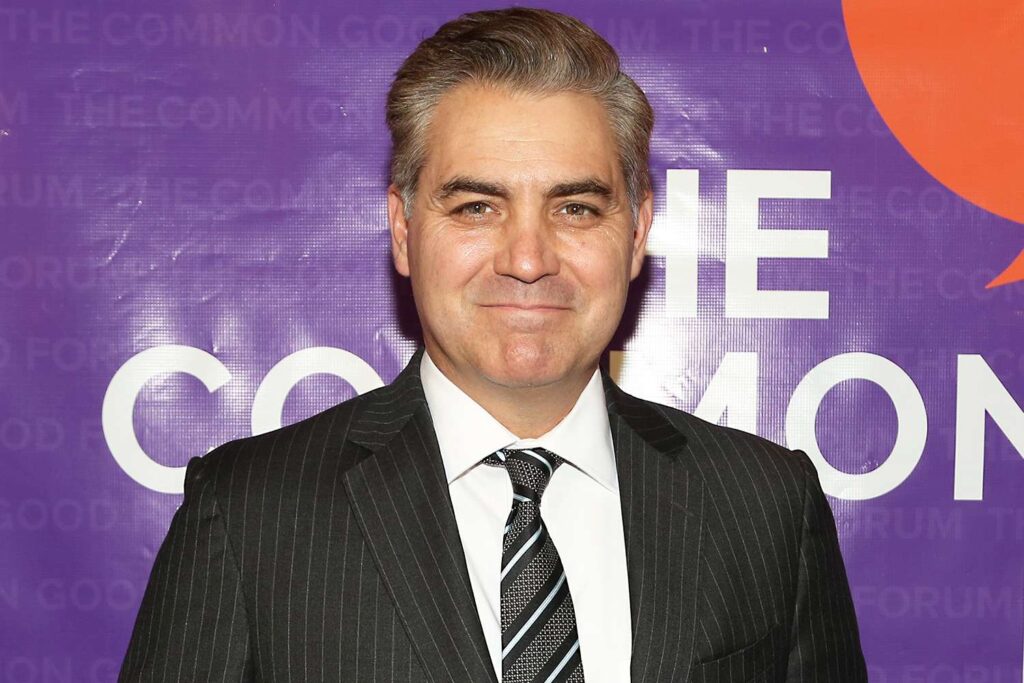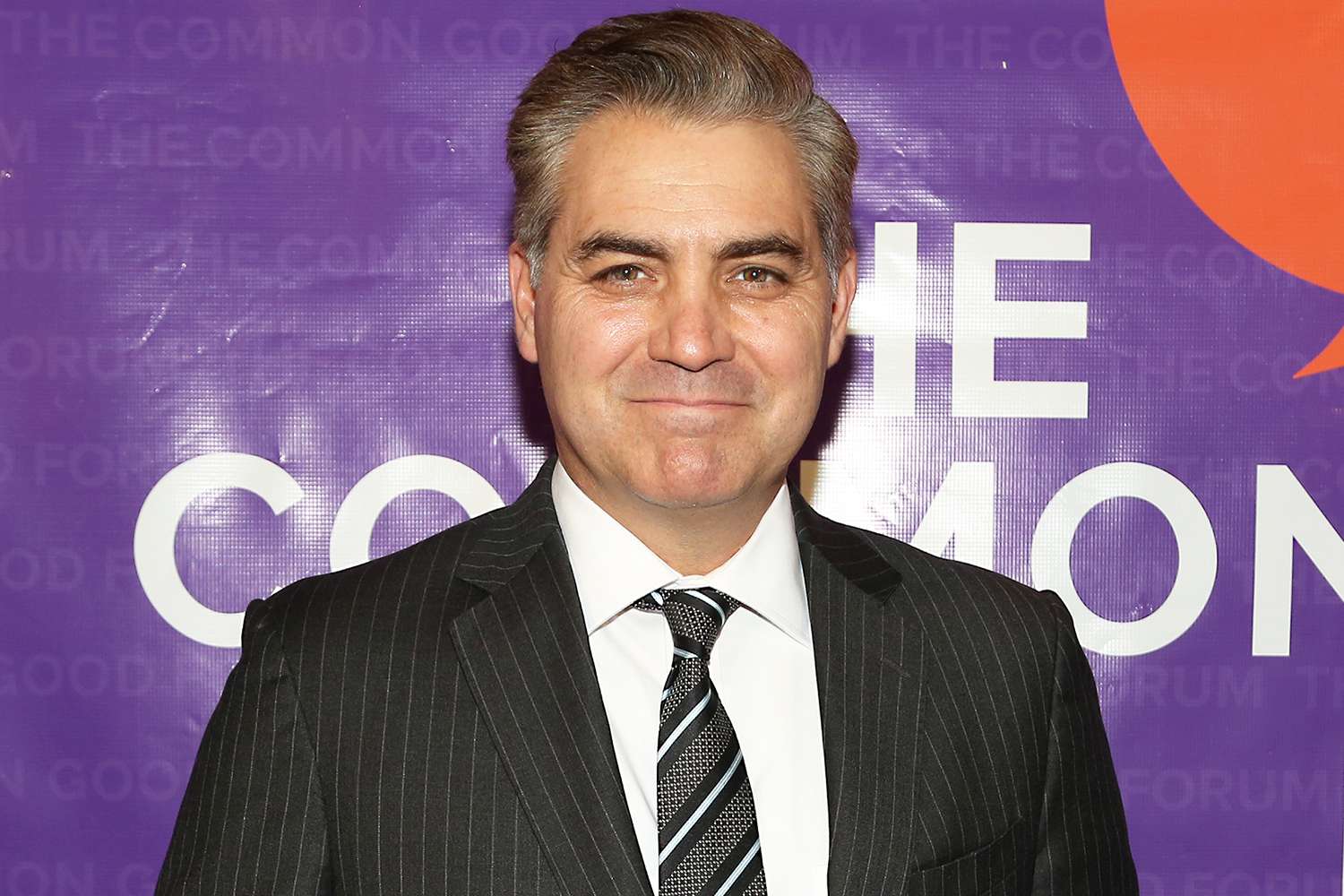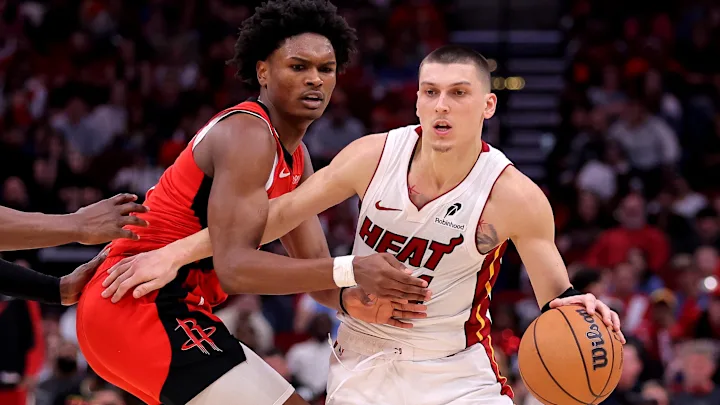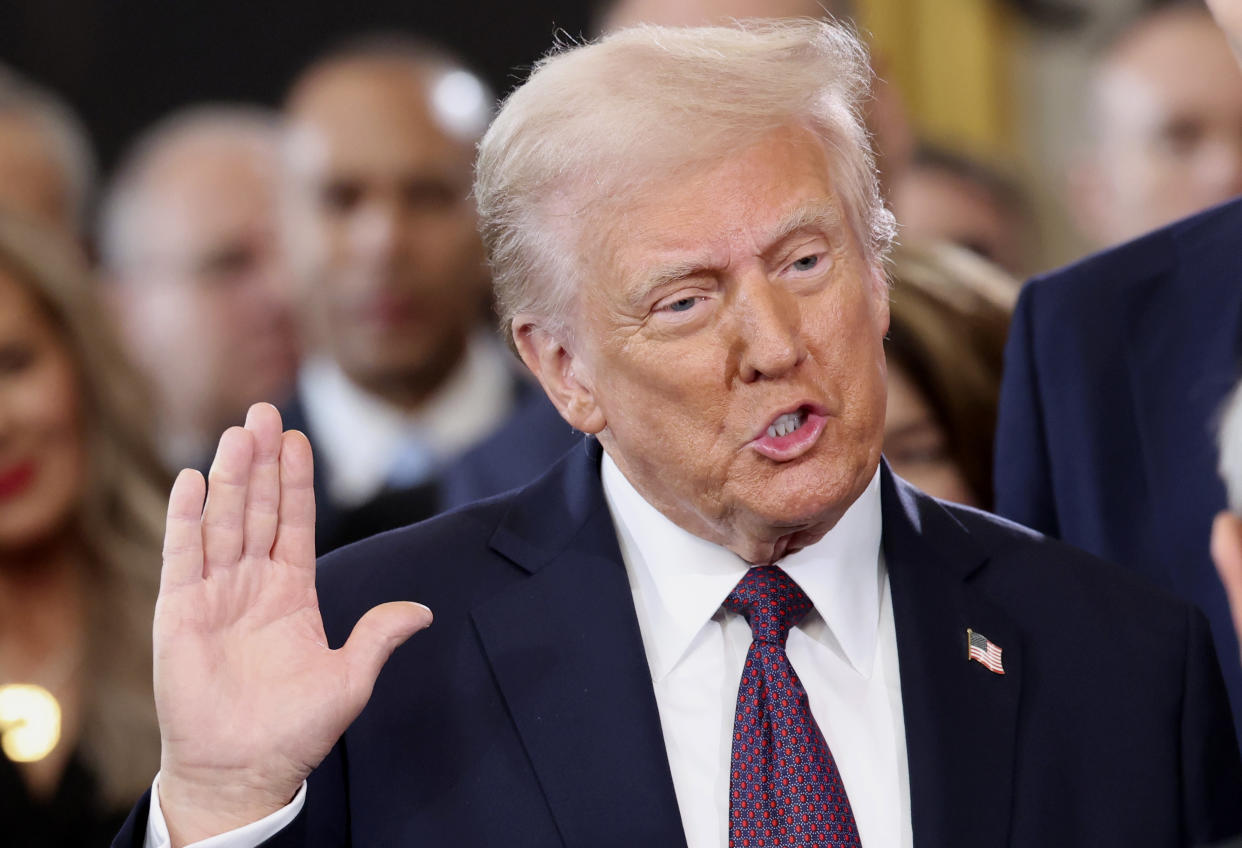
Jim Acosta : Explore Jim Acosta’s impactful career, from confronting political power to shaping media narratives. Learn about his challenges, triumphs, and legacy in journalism.
Table of Contents
Jim Acosta: A Journalist’s Journey Through Political Turmoil and Media Challenges
Jim Acosta, a prominent name in American journalism, has long been at the forefront of media’s most challenging battles. As CNN’s chief White House correspondent during the Trump administration, Acosta became a symbol of resistance in the face of political hostility towards the press. His career trajectory, marked by resilience and tenacity, provides a blueprint for modern journalism.
In this article, we’ll explore Jim Acosta’s journey, his most significant moments in journalism, and the impact he has had on both the media landscape and public discourse.
Early Life and Education
Jim Acosta was born on April 17, 1971, in Washington, D.C. Raised in a culturally diverse environment, Acosta developed an early interest in storytelling and communication. He pursued his passion by earning a degree in mass communication from James Madison University.
During his college years, Acosta worked at the student-run radio station, honing his skills as a reporter and anchor. This early exposure to media laid the foundation for what would become a distinguished career.
Career Beginnings: From Local News to CNN
Acosta began his professional career in local television, working for stations like WMAL in Washington, D.C., and WBIR-TV in Tennessee. These early roles allowed him to develop a keen understanding of reporting and storytelling, skills that would later define his national career.
In 2007, Acosta joined CNN, where he initially served as a general assignment correspondent. Over time, his in-depth reporting and ability to handle high-pressure situations earned him a promotion to national political correspondent.
Jim Acosta’s Tenure as CNN’s Chief White House Correspondent
Acosta’s role as CNN’s chief White House correspondent during the Trump administration catapulted him into the national spotlight. His relentless questioning of former President Donald Trump and members of his administration often resulted in heated exchanges, many of which became viral moments.
One of the most notable incidents occurred during a 2018 press conference when Acosta’s press credentials were temporarily revoked by the Trump administration. The incident sparked a nationwide debate about press freedom and the role of journalists in holding government officials accountable.
The Legal Battle for Press Freedom
CNN filed a lawsuit against the Trump administration, arguing that revoking Acosta’s credentials violated the First Amendment. The case resulted in a federal judge ordering the restoration of Acosta’s press pass, a landmark victory for press freedom in the United States.
This event highlighted Acosta’s unwavering commitment to journalism and set a precedent for how journalists should be treated by public officials.
Challenges and Criticism
While Acosta’s career is celebrated by many, it has also been met with criticism. His confrontational style has drawn ire from political figures and media critics alike. Some argue that his approach blurs the line between reporting and advocacy.
However, Acosta has defended his methods, stating that his goal is to seek the truth and hold those in power accountable. This perspective aligns with the principles of journalism, emphasizing the importance of transparency and accountability.
Acosta’s Role in the Evolving Media Landscape
The rise of digital media and the 24/7 news cycle has significantly impacted journalism, and Jim Acosta’s career reflects these changes. His use of social media platforms like Twitter has allowed him to engage directly with audiences, breaking down traditional barriers between journalists and the public.
Acosta’s willingness to adapt to new technologies and communication methods has made him a relevant figure in today’s rapidly changing media environment.
The Power of Social Media
By leveraging platforms like Twitter, Acosta has been able to amplify his reporting and connect with a global audience. His tweets often provide real-time updates and insights, making him a trusted source for breaking news.
Books and Public Speaking
Beyond his work at CNN, Acosta has also made a name for himself as an author. His book, The Enemy of the People: A Dangerous Time to Tell the Truth in America, delves into his experiences as a journalist during the Trump administration.
In this memoir, Acosta reflects on the challenges of reporting in a politically polarized environment and the importance of press freedom. The book has been praised for its candid insights and compelling narrative.
Acosta is also a sought-after speaker, frequently appearing at events and conferences to discuss journalism, politics, and the media’s role in society.
Acosta’s Impact on Journalism
Jim Acosta’s career has left an indelible mark on the field of journalism. His fearless approach to reporting has inspired a new generation of journalists to uphold the principles of truth and accountability.
Legacy of Press Freedom
Acosta’s legal battle over his press credentials serves as a reminder of the importance of protecting press freedom. His willingness to stand up to political power has reinforced the role of journalists as watchdogs of democracy.
Inspiration for Future Journalists
Aspiring journalists can learn valuable lessons from Acosta’s career. His resilience, dedication to truth, and ability to navigate complex political landscapes offer a roadmap for success in the field.
What’s Next for Jim Acosta?
As of today, Acosta continues to work as a CNN anchor and correspondent, focusing on a wide range of topics. While his role may have evolved, his commitment to journalism remains unwavering.
In an era where misinformation and political polarization are rampant, journalists like Acosta play a crucial role in ensuring that the public remains informed and empowered.
Internal Linking to TheNewsify
For more insights into media, journalism, and political news, explore the latest articles on TheNewsify. Our platform provides in-depth analysis and updates on key issues shaping the world today.
External Resources for Further Reading
- CNN Official Website: Stay updated with Jim Acosta’s latest reports and articles.
- AP News: Explore more stories about press freedom and political journalism.
- PEN America: Learn about the importance of press freedom and efforts to protect journalists worldwide.
Jim Acosta’s journey is a testament to the power of journalism in shaping public discourse and holding power to account. His career, marked by courage and determination, serves as an inspiration for journalists and citizens alike.
In a time when the truth is often under siege, figures like Acosta remind us of the critical role of the press in defending democracy and ensuring transparency.
Jim Acosta’s Departure from CNN: A Landmark Shift in Media and Politics
Jim Acosta, a seasoned journalist and former White House correspondent, has made headlines once again—this time not for a heated exchange with a political leader, but for his departure from CNN. After 18 years at the network, Acosta announced he was stepping down rather than accepting a new late-night time slot. His decision has sparked debates about journalism, politics, and the evolving media landscape. Here’s a deep dive into the implications of his departure and its broader context.
Acosta’s Role at CNN: A Legacy of Holding Power to Account
Jim Acosta’s name became synonymous with confrontational and uncompromising journalism during Donald Trump’s presidency. As CNN’s chief White House correspondent, Acosta consistently pressed the administration on contentious issues, often becoming a target of Trump’s verbal attacks. Trump’s labeling of Acosta as “fake news” and an “enemy of the people” solidified the journalist’s position as a symbol of resistance against what many viewed as an assault on press freedom.
However, Acosta’s career spans far beyond his exchanges with Trump. In his farewell address, he highlighted a defining moment: covering President Barack Obama’s historic trip to Cuba in 2016. During that trip, Acosta posed a challenging question to Cuban leader Raul Castro about political prisoners, a moment that resonated deeply with him as the son of a Cuban refugee. “It is never a good time to bow down to a tyrant,” Acosta remarked, reinforcing his belief in journalism’s role to hold power accountable.
The CNN Shuffle: Why Acosta Declined the Late-Night Slot
CNN’s recent announcement of a major daytime lineup reshuffle placed Acosta in a precarious position. The network proposed moving him to a midnight Eastern time slot, with a simultaneous simulcast on CNN International. This shift would have required Acosta to relocate to Los Angeles, where the show would air at 9 p.m. Pacific time.
For many, this seemed like a demotion for a journalist of Acosta’s stature. While CNN insists the decision was not politically motivated, the timing—just as Trump returned to office—raised eyebrows. Some speculated whether this move signaled a shift in CNN’s editorial direction or an effort to sideline one of its most polarizing figures.
Acosta’s response was firm. Declining the offer, he chose to part ways with a network he’d been a part of for nearly two decades. His decision underscores the importance he places on maintaining his journalistic integrity and ensuring his platform aligns with his values.
Trump’s Reaction: Fueling the Fire
Just minutes before Acosta’s on-air announcement, former President Trump took to his social media platform, Truth Social, to comment on the news. “Jim is a major loser who will fail no matter where he ends up,” Trump posted. The timing of Trump’s remarks and the content of his post highlighted the enduring animosity between the two figures.
This public feud has been emblematic of the larger tension between the Trump administration and the press. Acosta’s tenure at CNN became a flashpoint in this ongoing battle, with his departure marking the end of an era.
Journalism in the Trump Era: The Stakes of Speaking Truth to Power
Acosta’s departure comes at a critical juncture for journalism. The Trump era has fundamentally reshaped the relationship between the press and political power. Journalists like Acosta found themselves not only reporting the news but also defending their profession against unprecedented attacks.
Acosta’s famous exchanges with Trump—from questions about immigration policy to the handling of the COVID-19 pandemic—often went viral, making him both a hero to some and a lightning rod for criticism. His aggressive questioning style and refusal to back down earned him praise for upholding journalistic standards but also accusations of bias.
The lessons of this era extend beyond Acosta. They raise broader questions about the role of the press in a democratic society. How can journalists maintain their independence while navigating a polarized landscape? What does it mean to hold power to account when the very nature of truth is contested?
Acosta’s Final Message: A Call to Action

In his farewell address, Acosta left viewers with a powerful message: “Don’t give in to the lies. Don’t give in to the fear. Hold on to the truth. And to hope.” These words encapsulate his approach to journalism and his vision for the future.
Acosta’s career serves as a reminder of the critical role journalists play in upholding democratic values. Whether confronting a president or asking tough questions abroad, his work has consistently emphasized the importance of truth and accountability. As he moves on from CNN, his departure invites reflection on the challenges and responsibilities facing today’s media professionals.
The Future of Jim Acosta
What lies ahead for Acosta remains uncertain. His track record suggests he’s unlikely to stay out of the public eye for long. Whether he pursues independent journalism, authors another book, or transitions to a new media platform, his voice is bound to remain influential.
Acosta’s departure also sparks speculation about CNN’s future direction. As one of its most recognizable figures steps down, the network faces the challenge of navigating a changing media environment while maintaining its credibility and audience engagement.
Conclusion: A Defining Moment for Journalism
Jim Acosta’s exit from CNN marks the end of a significant chapter in modern journalism. It reflects not only the personal journey of a dedicated journalist but also the shifting dynamics of media, politics, and public discourse in the 21st century.
As Acosta steps away, his legacy as a fierce advocate for truth and accountability endures. His departure challenges both journalists and audiences to consider the values that underpin a free press and the role each of us plays in upholding them. In a time of widespread misinformation and deep political divides, Acosta’s call to hold on to the truth and hope remains more relevant than ever.









Leave a Reply